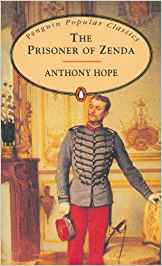What do you think?
Rate this book


140 pages, Paperback
First published January 1, 1894


Thus he vanished--reckless and wary, graceful and graceless, handsome, debonair, vile, and unconquered.

wicked men I have known in plenty, but rupert hentzau remains unique in my experience. [...]
"he's very handsome, isn't he?" said flavia.
well, of course, she didn't know him as I did; yet I was put out, for I thought his bold glances would have made her angry. but my dear flavia was a woman, and so—she was not put out. on the contrary, she thought young rupert very handsome—as, beyond question, the ruffian was.
thus led, my broodings leave the future, and turn back on the past. shapes rise before me in long array—the wild first revel with the king, the rush with my brave tea-table, the night in the moat, the pursuit in the forest: my friends and my foes, the people who learnt to love and honour me, the desperate men who tried to kill me. and, from amidst these last, comes one who alone of all of them yet moves on earth, though where I know not, yet plans (as I do not doubt) wickedness, yet turns women's hearts to softness and men's to fear and hate. where is young rupert of hentzau—the boy who came so nigh to beating me? when his name comes into my head, I feel my hand grip and the blood move quicker through my veins: and the hint of fate—the presentiment—seems to grow stronger and more definite, and to whisper insistently in my ear that I have yet a hand to play with young rupert; therefore I exercise myself in arms, and seek to put off the day when the vigour of youth must leave me.